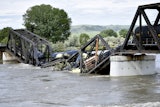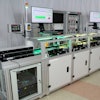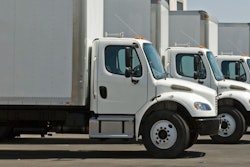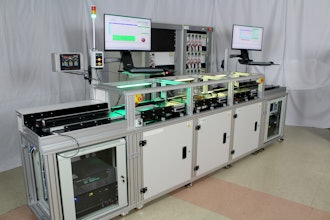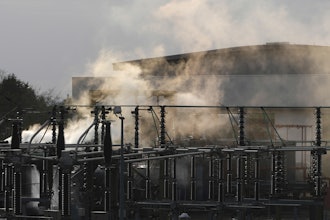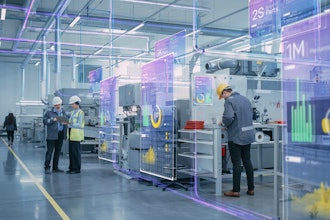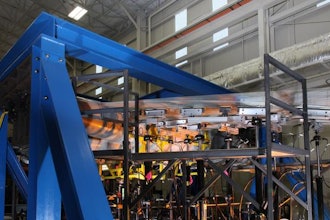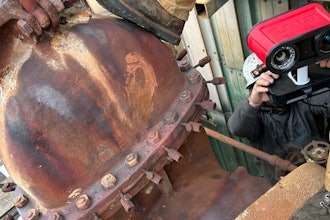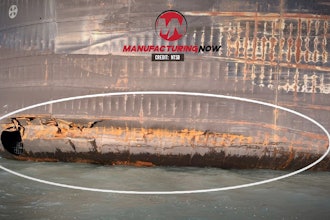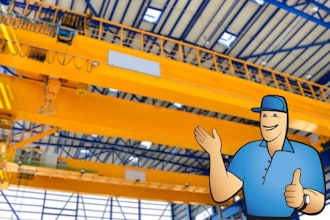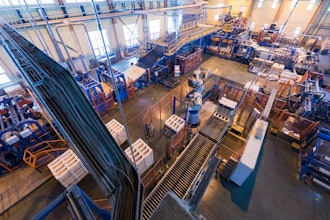
Every business produces waste, but not all waste is equal. When it comes to industrial-plant maintenance, specialized products lead to unique waste needs, a result of differences in size, types of waste, special handling needs and environmental footprint concerns.
Often one company alone can produce a variety of waste, leading to costly and labored efforts to create a streamlined and sustainable waste system. But how can companies handle different waste streams the right way?
By implementing customized services, industrial plants can tailor their approach. A quality waste-program solution addresses waste-generator expectations and requirements while addressing service suppliers, quality-control issues, economic and environmental benefits, data and reporting analytics, and even a simplified billing system.
Tailor Waste Management For Economic And Environmental Benefits
A streamlined, tailored waste management system may sound like a tall task. But if businesses prioritize four key steps, customizing waste solutions can create economic and environmental opportunities.
Bidding and Rightsizing: Starting at the basics is a crucial step to streamlining waste management. When is the last time current services were reviewed and audited? Is there an opportunity to rightsize? Companies that grow and innovate also have evolving waste needs. Revising waste plans and bidding out new portfolio specifications allows for a comprehensive review of current waste management and may reveal opportunities to save time and money through the evolution of waste production.
Data Collection, Reporting and Analytics: To help rightsize and bid out new portfolio specs, reporting analytics and business intelligence are essential for a company looking to streamline waste services. Businesses should be constantly monitoring waste production. Look for and evaluate tools that capture and track cost reduction, generating reports on a regular basis to provide continual improvement and savings.
Recycling Partnerships and Optimization: Remember that companies don’t have to go it alone when it comes to waste programs. Alternative programs like zero-landfill (waste-to-energy) and small and large stream recycling can result in a significant reduction of spending while maintaining sustainability as a high priority. If a business is looking for solutions but can’t justify the cost of investment, partnering with organizations to opt into larger programs is a must.
Remote Technology: The Internet of Things meets waste management. Remote technology can monitor, measure and optimize companies’ waste and recycling processes, allowing a business to optimize compactor and baler waste. Technology can monitor fullness of waste receptacles and can allow for the remote monitoring of an entire power unit— including oil temperature, switching controls, safety features, container connections and system operating performance.
Consider a Broker: Many organizations have multiple facilities with unique needs in different geographic locations. The varying requirements of waste management and the need to tailor and take advantage of waste technology to minimize cost may lead to a significant investment on the part of an industrial plant. By working with a broker, companies can use a centralized source for all waste needs. Waste brokers can tailor program management solutions that address waste-generator expectations and requirements for single-source management of service suppliers. By managing quality of service, reduction of costs, data and reporting analytics, and consolidated invoicing and landfill diversion, brokers work to improve economic and environmental performances on behalf of companies.
Whether a company is looking for large and small container services, compactors, balers, construction services or recycling, taking an analytical look at current waste needs and offerings, re-approaching current contracts, taking advantage of partnerships and employing high technology will allow a business to optimize via a customized waste management program. Waste management solutions vary from mail-in low-volume recycling programs to integrated technical automated solutions.
Remote Waste Monitoring: The Next Step In Customization
Waste monitoring impacts companies big and small, but multilocation businesses are met with additional complications and needs. In this case, automation with internet-based technology is especially useful because increased waste and recycling efficiencies often translate into significant cost and time savings.
Internet-based technology enables systems to monitor, measure and optimize companies’ waste and recycling processes. These integrated trash-compactor monitoring services simplify how companies handle disposal machine monitoring, providing an access point for monitoring trash/recycling equipment, controls status and alarms.
By applying advanced analytics to instrument and software alarms, remote monitoring allows companies to troubleshoot and repair trash equipment issues. Ideally, this allows for a quick response time, fast repairs and minimized machine downtime. Systems also can provide real-time fullness status for compactors, including pickup and return status, pickup history, upcoming scheduled haul and activity logs. Additionally, remote systems eliminate the potential for human error in monitoring while allowing teams to remote monitor and troubleshoot to better understand waste flow processes.
As the waste industry evolves and technology improves across the board, companies are working to improve waste management options, including applying remote monitoring to vertical balers, stand-alone compactors and small containers for multilocation businesses. But not all waste is created equal, and waste programs should be customized for maximum impact on time and money. Assessing, monitoring and adjusting programs for companies big and small is the priority, and businesses that take a critical eye to their waste management programs can select tools and partnerships that fit their individual needs.
 Michael Hess, Founder and Chief Executive Officer of Waste Harmonics
Michael Hess, Founder and Chief Executive Officer of Waste HarmonicsMichael Hess is the founder and chief executive officer of Waste Harmonics, a Rochester, New York-based company that provides customized waste and recycling management solutions for businesses across North America. Hess leads Waste Harmonics’ team of waste/recycling, technology, logistics and customer service experts who broker waste and recycling services for single- and multi-location businesses in a wide range of business categories.
